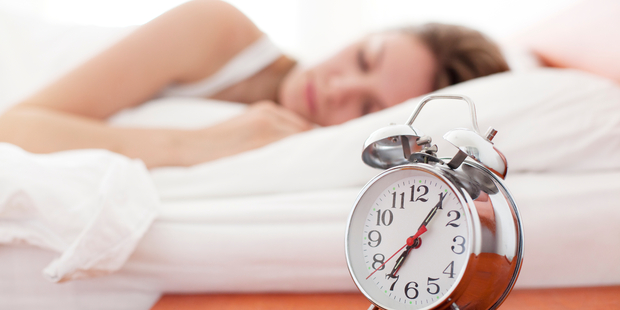-
Tips for becoming a good boxer - November 6, 2020
-
7 expert tips for making your hens night a memorable one - November 6, 2020
-
5 reasons to host your Christmas party on a cruise boat - November 6, 2020
-
What to do when you’re charged with a crime - November 6, 2020
-
Should you get one or multiple dogs? Here’s all you need to know - November 3, 2020
-
A Guide: How to Build Your Very Own Magic Mirror - February 14, 2019
-
Our Top Inspirational Baseball Stars - November 24, 2018
-
Five Tech Tools That Will Help You Turn Your Blog into a Business - November 24, 2018
-
How to Indulge on Vacation without Expanding Your Waist - November 9, 2018
-
5 Strategies for Businesses to Appeal to Today’s Increasingly Mobile-Crazed Customers - November 9, 2018
Lack Of Sleep Can Make You Sick, UCSF Study Finds
Researchers at the University of California exposed 164 volunteers to the common cold virus to assess their ability to fight off the infection. Sleeping six hours or less per night quadruples your chances of catching a cold, researchers claim.
Advertisement
So, it turns out your mother was right again: The less sleep you get, the more likely you are to catch a cold. “Statistically sleep still carried the day”.
Researcher Professor Derk-Jan Dijk, who leads a sleep and physiology unit at Surrey, said sleep was a fundamental “pillar of health” alongside diet and exercise. Prather said the study wasn’t designed to figure out the underlying biology between the lack of sleep and susceptibility to colds.
“It didn’t matter how old people were, their stress levels, their race, education or income”. Experts at the US Centers for Disease Control and Prevention claim insufficient sleep is a public health epidemic linked to vehicle crashes, industrial disasters and medical errors.
Before you turn off your alarm off – keep in mind that there have been studies that have found that those who sleep nine or more hours could increase their risk of death.
Cold risk was 4.2 times greater for those who slept fewer than six hours a night, and 4.5 times greater for anyone grabbing five hours or less of slumber a night, when compared with those getting more than seven hours a night.
Their sleep habits were measured for one week prior to the beginning of the study, which required them to stay in a hotel room in the Pittsburgh, Pennsylvania area.
Prather said future research will focus on getting a better understanding on the relationship between sleep and the immune system, particularly if there are specific aspects of the immune system that are uniquely tied to sleep.
Advertisement
“Multiple epidemiological studies have shown self-reported short sleep duration – defined in most studies as less than six hours – is associated with negative health outcomes such as all-cause mortality, obesity, diabetes, cardiovascular disease and impaired vigilance and cognition”. It includes top-ranked graduate schools of dentistry, medicine, nursing and pharmacy, a graduate division with nationally renowned programs in basic, biomedical, translational and population sciences, as well as a preeminent biomedical research enterprise and two top-ranked hospitals, UCSF Medical Center and UCSF Benioff Children’s Hospital San Francisco.





























